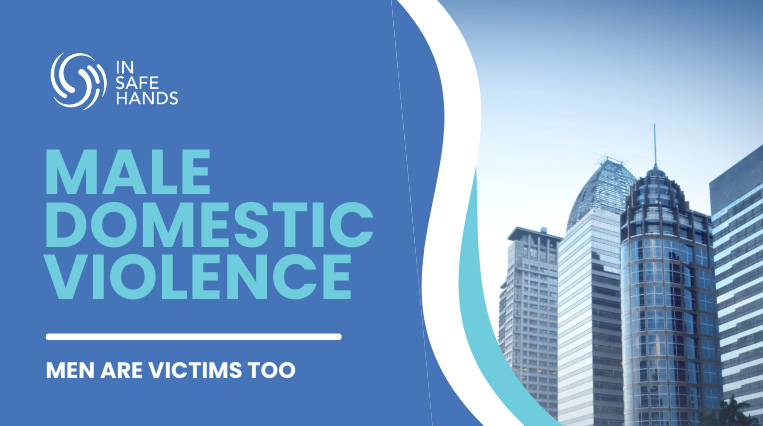
Men are also Victims of Domestic Violence

International Men's Day 2024 Focus
While domestic violence against men is often underreported, studies suggest that approximately 1 in 4 men will experience some form of intimate partner violence in their lifetime. Research also shows that men are less likely to report abuse or seek help, with many facing stigma and societal pressures that prevent them from disclosing their experiences.
Impact of Societal Expectations
Domestic violence affects men in many of the same ways it affects women, but societal expectations often make it more difficult for men to seek help or share their experiences. These can include:
Psychological and Emotional Impact: Men who experience domestic violence may suffer from depression, anxiety, low self-esteem, and post-traumatic stress disorder (PTSD). The trauma from physical or emotional abuse can leave deep scars, leading to long-term mental health issues.
Isolation: Due to the stigma around men being victims of abuse, they may feel isolated or ashamed. Society often pressures men to be strong and not show vulnerability, which can prevent them from reaching out for help or even acknowledging their own suffering.
Physical Consequences: Men experiencing domestic violence may face physical injuries ranging from minor cuts and bruises to more severe harm. However, they may be less likely to seek medical attention due to fear of judgment or disbelief.
Challenges in Seeking Help: Men may hesitate to contact support services because they worry about not being taken seriously or being mocked. This can result in them not reporting the abuse or seeking the necessary support until the situation becomes critical.
Impact on Relationships: Experiencing domestic violence can lead to feelings of powerlessness, frustration, and confusion. It can also strain relationships with friends and family, who may not understand or believe the victim’s experience.
Social Stigma: The belief that men should be "strong" or "in control" can prevent them from reporting abuse. Some men fear being labeled as weak or emasculated if they admit they are victims, which can lead to shame and silence.
Underreporting: Many men do not report domestic violence incidents because they fear not being believed, facing societal judgment, or facing legal consequences. Studies show that men are much less likely to report their experiences to the authorities or seek support from domestic violence services.
For men experiencing domestic violence, it is crucial to foster a more supportive environment where they feel safe and validated in speaking out and seeking help. Specialized support services that understand the unique challenges men face in abusive situations are essential for encouraging them to break their silence and access the support they need.
How can Families Help?
Families can provide crucial support for men experiencing domestic violence by creating a safe, non-judgmental environment where they feel heard and believed. It’s important to listen without criticism, validate their feelings, and reassure them that seeking help is okay. Families can encourage professional support, such as counseling or domestic violence services, and assist with safety planning if needed. Supporting their mental and emotional well-being through self-care and helping with practical needs like transportation or finding legal help can also make a difference. It's essential to be patient, understanding that the victim may not be ready to act immediately, and to respect their choices while offering ongoing emotional support. Families can also help challenge societal stereotypes around male victims of abuse by educating themselves and advocating for more inclusive support systems. Ultimately, the goal is to empower the individual to take control of their situation and make informed decisions about their safety and well-being.

